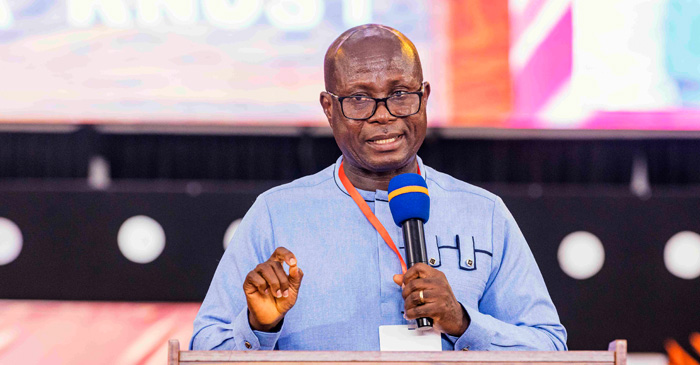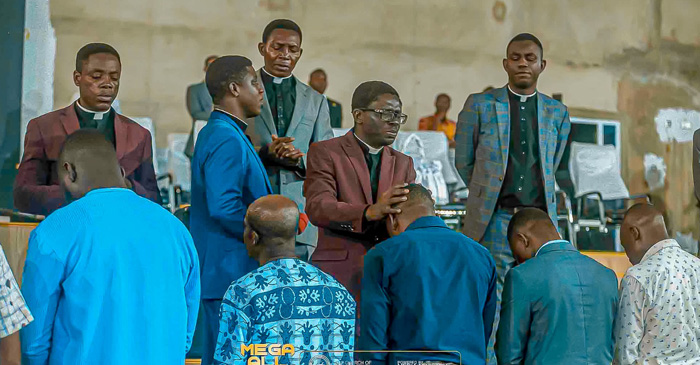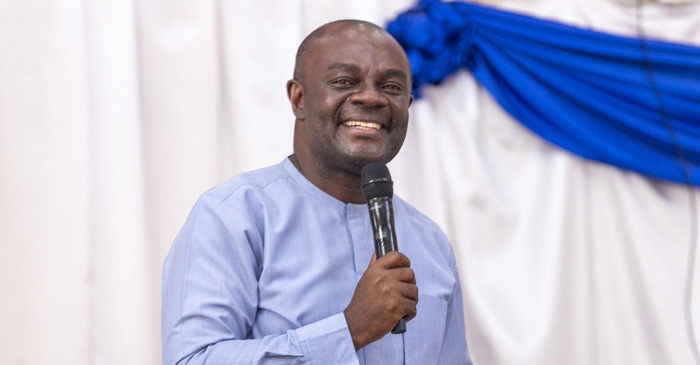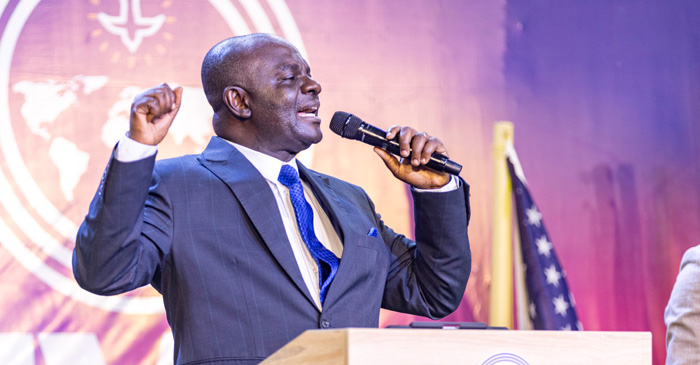
The quest for urgent medical solutions is driving some patients from seeking standard medical solutions. Thus, instead of going to the hospital upon falling sick, they prefer to go to pastors, marabout, traditional healers, prophets, seers, mallams, and prayer camps among others, with the expectation of getting total healing at any cost.
Most of them, assert that orthodox medicines alone are not enough; they must be supplemented with anointing oils, counseling from pastors, herbal medicines, and other possible solutions.
So when a patient seeks the services of a pastor for medical solutions, do these pastors lace the shoes of becoming ‘medical doctors’ or drugless healers or does the court still consider them as pastors performing their clerical duties? Is there a standard of test for these pastors in case the patient suffers from any wrong medical advice such as to stop taking the prescribed medication from the hospital or the patient dies in the course of the wrong advice?
I herein examine the legal aspect of a patient seeking medical advice or treatment from a pastor.
Legal controversy
Malpractice generally is defined as a failure to exercise an accepted degree of skill in the performance of professional duties that results in injury to another. In the past, malpractice suits were restricted almost exclusively to doctors and lawyers—a doctor prescribed the wrong medication or made a faulty diagnosis; a lawyer missed a pleading deadline or made an error in a title search.
In our jurisdiction, I am yet to see any malpractice suit against a pastor. However, in other parts of the world like the US, also a common law jurisdiction, I came across a few cases r of malpractice suits brought against ministers of the gospel. Though these cases are not binding in our jurisdiction, they could have a persuasive effect on clergy malpractice in our jurisdiction.
The interesting thing is that most of these cases emanated from the US Supreme Court and generally are treated with great respect by other courts, and may be compelling elsewhere.
I found that most courts have rejected clergy malpractice as a basis for liability in all cases. A few courts have found clergy guilty of malpractice for engaging in sexual misconduct with an adult or minor, or if they engage in “non-religious” counseling.
Courts did not support malpractice against Clergy Men
In 1955 at a Jack Coe revival service in Miami, Florida, Coe told the parents of a three-year-old boy that he healed their son who had polio. Coe then told the parents to remove the boy’s leg braces. However, their son was not cured of polio, and removing the braces left the boy in constant pain.
As a result, through the efforts of Joseph L. Lewis, Coe was arrested and charged on February 6, 1956, with practicing medicine without a license, a felony in the state of Florida. A Florida Justice of the Peace dismissed the case on grounds that Florida exempts divine healing from the law. Later that year Coe was diagnosed with bulbar polio and died a few weeks later at Dallas’ Parkland Hospital on December 17, 1956.
Another case worth deliberating is Nally v. Grace Community Church, 253 Cal. Rptr. 97 (1988). This case addresses “clergy malpractice,” the California Supreme Court ruled that a church and some of its ministers were not legally responsible for the death of a suicide victim who had been a member of the church and who had counseled with the ministers.
The court further reasoned that clergy has no duty to “refer” suicidal persons to medical professionals, the court observed that “because of the differing theological views espoused by the myriad of religions in our state and practiced by church members, it would certainly be impractical, and quite possibly unconstitutional, to impose a duty of care on pastoral counselors. Such a duty would necessarily be intertwined with the religious philosophy of the particular denomination or ecclesiastical teachings of the religious entity.”
Also a Texas court, in declining to recognize “clergy malpractice” as a basis for liability, reasoned in Sanders v. Casa View Baptist Church, 134 F.3d 331 (5th Cir. 1998):
Because the [civil courts] must abstain from ecclesiastical disputes involving questions of doctrine or practice, state courts have rejected uniformly claims for clergy malpractice. This is because such a claim requires the definition of the relevant standard of care.
Defining that standard could embroil courts in establishing the training, skill, and standards applicable for members of the clergy in a diversity of religions with widely varying beliefs. Furthermore, defining such a standard would require courts to identify the beliefs and practices of the relevant religion and then determine whether the clergyman had acted in accordance with them.
Thus, as these courts have correctly concluded, to recognize a claim for clergy malpractice would require courts to identify and apply the teachings of a particular faith, thereby making the judiciary responsible for determining what conduct and beliefs are part of a particular religion.
In Schmidt v. Bishop, 779 F. Supp. 321 (S.D.N.Y. 1991). See also Jones by Jones v. Trane, 591 N.Y.S.2d 927 (Sup. 1992) where the court reasoned that it is injustice to interfere in the affairs of Presbyterian doctrines. Before the court can interfere, it is prudent to examine whether the Presbyterian pastor performs his duties in line with their doctrines and expertise in the same Presbyterian community.
The court concluded that since clergy malpractice was not recognized in New York, it had no choice but to dismiss the lawsuit against the pastor
Also in a case involving a seduction allegation made against a catholic priest, the Colorado Supreme Court in Destefano v. Grabian, 763 P.2d 275 (Colo. 1988), declined to recognize the theory of “clergy malpractice”.The woman had claimed that the priest “negligently performed his duty as a marital counselor.”
The court acknowledged that psychologists and psychiatrists may be sued for malpractice if they engage in sexual relations with counselees. However, a Colorado statute precisely excluded clergy from the list of counselors who can be sued for malpractice based on such conduct, and accordingly, the court ruled that the priest could not be sued for malpractice.
In Joshua S. v. Casey, 615 N.Y.S.2d 200 (A.D. 1994), a New York court ruled that a church and diocese could not be sued based on malpractice for the alleged sexual misconduct of a priest. The court reasoned that “we are unaware of any authority supporting the proposition that sexual abuse by a member of the clergy is cognizable as clergy malpractice. See also Stock v. Pressnell, 527 N.E.2d 1235 (Ohio 1988), where the court dismissed an allegation of sexual misconduct against a priest.
Even where the pastor gives the wrong advice, the pastor is not liable. In Bladen v. First Presbyterian Church, 857 P.2d 789 (Okla. 1993), the Oklahoma Supreme Court declined clergy malpractice as a basis for liability in a case brought by a husband for “bad advice” he had received from a minister. The court concluded:
Once a court enters the realm of trying to define the nature of advice a minister should give a parishioner serious First Amendment issues are implicated. We decline to determine the nature of the advice a minister must give during counseling sessions with a parishioner, and we decline to recognize a claim for bad advice from a minister under the facts before us.
Where a Pastor could be held liable?
A few courts have recognized malpractice claims against clergy in either or both of the following two situations:
- sexual misconduct with an adult or minor; and
- “Non-religious” counseling
In DeBose v. Bear Valley Church of Christ, 890 P.2d 214 (Colo. App. 1994), the court only held the pastor for clergy malpractice when the pastor was a professional therapeutic counselor and also performed his duties as a pastoral counselor.
In this case, if the pastor provided the said counseling as a professional counselor and not as a pastor would be held liable to the standard of a therapeutic counselor and not a pastoral counselor.
This was further fortified in Barnes v. Outlaw, 937 P.2d 323 (Ariz. App. 1996), where the pastor said he was a therapist as well and counseled in his capacity as a professional therapist and not a pastor. Here he may be sued for “therapist” malpractice as a result of the pastor’s disclosure of confidential information shared with him by a counselee during counseling.
The court noted that “the inclusion of biblical passages on the chart [used by the pastor] did not convert the session into religious counseling, especially when the purpose of the meeting was not to provide her with religious or spiritual guidance, the church’s precepts and practices were not part of the counseling, and [the victim] was not a church member when she sought help from [the pastor].”
In Sanders v. Casa View Baptist Church, 134 F.3d 331 (5th Cir. 1998), a federal appeals court decided that two female church employees may sue the minister who had seduced them since he had “held himself out” as a qualified marital counselor. This is because, at that particular church, the minister’s duties did not include counseling, and he was aware that he was not responsible for providing spiritual counseling to church members. He also knew that the church had a written policy of referring church members in need of nonpastoral counseling to a licensed professional counselor.
It explained its reasoning as follows:
Because the jury found that [the former minister] held himself out as possessing the education and experience of a professional marriage counselor, his counseling activities with the [two women] were judged, not by a standard of care defined by religious teachings, but by a professional standard of care developed through expert testimony describing what a reasonably prudent counselor would have done under the same or similar circumstances.
Take home
From the courts’ position, a pastor cannot be held for malpractice if he provides wrong medical advice to a church member if the church doctrines support the advice.
A pastor can only be held liable if he claimed to be a professional such as a Medical doctor and provided the advice in his capacity as such and not as a clergyman.
Finally, in determining the Standard of Care for Christian Science Practitioners in Medical Negligence Cases, the author submits that in our settings faith healers ought to be held to the same standards as other medical practitioners to best protect the interests of the public.
Prof. Raphael Nyarkotey Obu is a full professor of Naturopathic Healthcare. Recently completed the Barrister at Law Course at the Gambia Law School, Banjul. E-mail: professor40naturopathy@gmail.com. This article is for educational purposes and awareness only.
Source: myjoyonline.com














